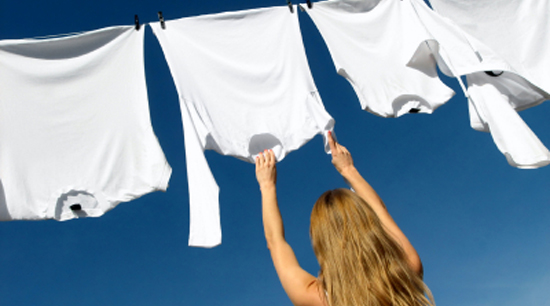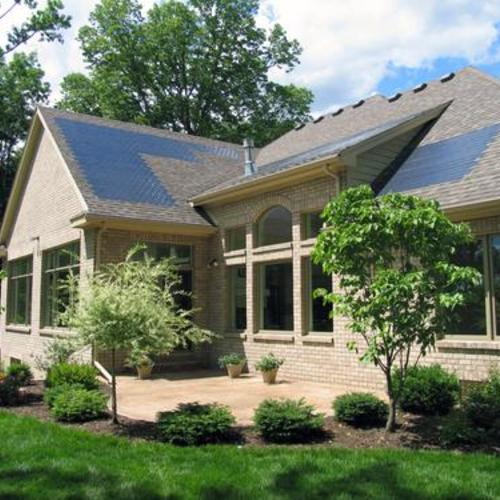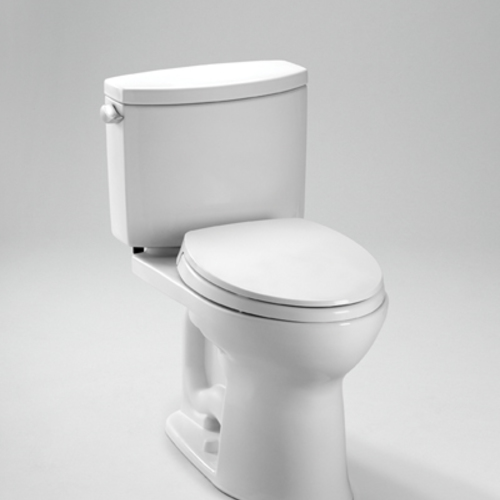
Image Credit: fibers.com
The last several weeks I’ve written about a number of common myths of green building. Here’s another: that the energy-conservation features and products we install are enough to ensure that our houses will be top energy performers.
The starting point in greening a home should always be the sorts of features I cover weekly in this blog: high levels of insulation, good air sealing and weatherization, efficient heating and cooling equipment, energy-efficient appliances and lighting, and renewable energy systems. But these systems aren’t enough to ensure that our energy bills will be low. How we operate our houses also has a huge impact.
To use an extreme example, even a superinsulated house with R-50 walls and triple-glazed windows will use a huge amount of energy if we leave the windows open all winter. Most of us would never do that — but we do leave the lights on and run water unnecessarily all the time. Below are a few strategies to help us save energy through thoughtful operation of our houses:
1. Turn off the lights
Lighting spaces that aren’t occupied wastes energy, pure and simple. No matter how efficient the electric lighting technology, turning those lights off saves more energy. Turn off the lights when you leave a room; if you can’t remember to do that — or if others in your family can’t — install occupancy sensors that turn off lights automatically after a room has been unoccupied for a certain length of time. (I like manual-on, auto-off occupancy sensors, so the lights don’t turn on when your cat walks into a room.) For outdoor lighting, if we can’t remember to turn lights on and off manually, motion sensors can be used to turn on lights only when needed, and photosensors will turn them off during the day.
2. Use task lighting
Often, we don’t need to light up a whole room. By turning on lights only where you need them — a practice known as “task lighting” — we can save lots of energy.
3. Take shorter showers
Heating water is one of the two or three largest energy uses in most homes — and as we improve the energy performance of our building envelopes (insulation levels, air tightness, windows, etc.), water heating becomes proportionally more important. Showers are typically the largest use of hot water in homes, and we can save a lot by not only installing low-flow showerheads (less than 2.0 gallons per minute) but also by taking shorter showers. A shower control that lets you turn the flow down while shampooing or lathering is another great way to save.
4. Don’t leave the faucet running
In the bathroom, avoid the temptation to leave the tap on while brushing your teeth or shaving. In the kitchen, don’t pre-rinse dishes before putting them in the dishwasher, or if you must pre-rinse, turn on the water for just a few seconds to do so — and use cold water.
5. Fill up the dishwasher
Most dishwashers use almost as much water with a half load as a full load, so you can save a lot of water and energy by waiting to run the dishwasher until it’s full. Maybe you’ll have to buy a few more dishes, but you’ll save money in the long run if this permits you to run the dishwasher only every second or third day.
6. Wash full loads of laundry
The same argument for running full loads in the dishwasher applies as well to clothes washers. Wait until you can run a full load.
7. Hang clothes outdoors
In good weather, you’ll save a lot of energy by hanging clothes outdoors. This will also save wear-and-tear on your clothes. (If you need evidence for this, think about where that lint you empty from the dryer trap is coming from!)
8. During the summer, operate your house to reduce air conditioning use
With hot days and cool nights (except when it’s very humid), it makes sense to close up the house during the day and open it up at night. During the day close windows and also lower blinds if you aren’t home (to block solar heat gain). Then at night open the house up to bring in cooler night air. In some places or during some times of year, this can totally obviate the need for air conditioning.
Achieving energy savings in homes is really a two-part strategy. First, we need the energy-saving technologies and systems in place. But often just as important is how we operate our houses for optimal energy performance. It isn’t rocket science, but it does take some common sense. Fancy technology isn’t the answer for everything.
I invite you to share comments on this blog.
—Alex Wilson is the executive editor of Environmental Building News and founder of BuildingGreen, LLC. To keep up with his latest articles and musings, you can sign up for his Twitter feeds.
Weekly Newsletter
Get building science and energy efficiency advice, plus special offers, in your inbox.















3 Comments
This is a very pervasive myth.
It's my opinion that to be green one MUST approach the problem from a lifestyle point of view. Being green is not something you achieve by doing one thing, five things or even a thousand things. Being green means an endless journey of always evaluating your behaviours and changing them for those that are more sustainable. In other words, you never get to hang up your hat and say "I'm as green as I can be" because there is ALWAYS more that can be done.
Unfortunately, I think this is what will always push being green into the back seat. Most people (I think) don't want to hear this. What most people want to hear is that if they recycle and put in some CFLs then they've done their part and they can go back to however it is they live their lives. Most people (I think) want off-the-shelf technological solutions because buying something is always easier than introspection. In effect technology becomes an excuse for not dealing with the real issues (which to re-iterate, revolve around unsustainable lifestyles).
A thousand years from now aliens could find an odd little planet with toxic atmosphere, dead oceans, derelict wind farms and little petro-chemical boxes arrangend nicely in rows by the thousands.
This article should be
This article should be published in all of the newspapers that people read daily. It would be interesting to see how the public reacts to these very simple lifestyle changes. Thank you Alex for all of the common sense oriented blogs in this series. And thank you Lucas for your common sense opinion on this issue. Your point is extremely accurate and describes the general thought process of our society. I believe that the largest obstacle that the Green Movement faces is changing the thought process of the common man. Common sense and compassion are the basic components in developing strategies to green ones life and in developing a sustainable lifestyle. The adage of addressing the "low hanging fruit" speaks directly to this. Unfortunately common sense is the hardest thing to teach, and compassion for all living species and our living environment is lacking in the general public. Leading by example will hopefully create a learning environment for others to follow. Societies' largest problem is wastefulness. Since the industrial revolution we have become progressively more and more of a wasteful society based on a disposable philosophy. When it breaks don't fix it replace it. This attitude has led to resource depletion, water scarcity, habitat destruction, overflowing landfills, and toxic waste just to name a few of the problems. Industry and Technology has followed suit and promoted the disposable philosophy. The development of the plastics industry saved certain resources yet created other problems such as air pollution, environmental carcinogens, CO2 in our atmosphere and toxic waste. Apathy in the general public propagated the environmental crisis that we now face. Our planet is in peril, and future existence is threatened, common sense philosophies may be the simple answer to the question. Collectively as a global community, we need to re-evaluate our lifestyles and make basic simple changes to reduce our ecological footprints. Hopefully those that dispute the science of Climate Change, and laugh at greening ones existence, can bury their selfish values and consider the good of all living things. Mans existence in the universe is only a speck of time, yet it affects the existence of all living species.
The root problem
This is a very practical list, and I agree with the other commenters that this would be an appropriate entry into a lot of different publications. As Lucas pointed out, it's not about a task oriented mindset, it's about educating people to understand the ecological impact of everything they do. You may not always turn the faucet off as fast as you should, or be efficient in your use of household electricity...but you're more likely to make more and better decisions on a day to day basis if people have a true understanding of their broader impact.
Thanks for this great read!
Brittany Sozak
Log in or create an account to post a comment.
Sign up Log in